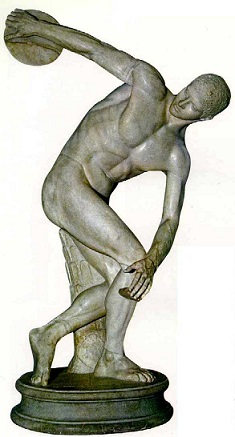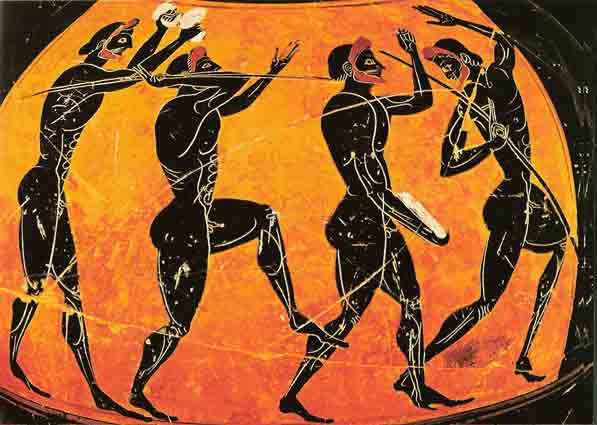Olympic Games: Origins
The Olympic Games were refound by Pierre de Feddry Baron. He founded in 1894 "Olympic committee internment. In 1896 was celebrated the firts Olympic Games in Athenas. The Olympism, today, is a humanistic philosophy that emphasize in to give importance to sports in the world. Foor the teenagers, their social social impact and their moral and pacific mission.


According to tradition, the king of Elis, near the sanctuary of Zeus at Olympia, organized in 776 B.C. the first Olympiad in honor of the supreme god of Greek religion. Various gymnastic tournament and military competitions (races, discus and javelin, archery, boxing, etc.) since then and every four years peacefully gathered Aegean populations.

The event became an identity symbol of the deep linking to this infinite conglomeration of cities that never accept being subsumed into a unified state. The prize for the various tests olive branch was belting the winner and inscribed his name in the history of the games.

1. Olympism is a philosophy of life, exalting and combining in a balanced whole the qualities of body, will and mind. Blending sport With culture and education, Olympism seeks to create a way of life based on the joy found in effort, the educational value of good example and respect for universal ethical principles essential.
2. The goal of Olympism is to place everywhere sport at the service of the harmonious development of man, with a view to encouraging the establishment of a peaceful society concerned With the preservation of human dignity.
3. Under the supreme authority of the IOC, the Olympic Movement encompasses Organizations, athletes and other persons WHO agree to be guided by the Olympic Charter. The criterion for the Olympic Movement Belonging to is recognition by the IOC.
4. The goal of the Olympic Movement is to Contribute to building a peaceful and better world by educating youth through sport practised without discrimination of any kind and in the Olympic spirit, Which requires mutual understanding with a spirit of friendship, solidarity and fair play .
5. The Olympic Charter is the codification of the Fundamental Principles, Rules and Bye-laws ADOPTED by the IOC. It Governs the organization and operation of the Olympic Movement and stipulates the conditions for the celebration of the Olympic Games.
